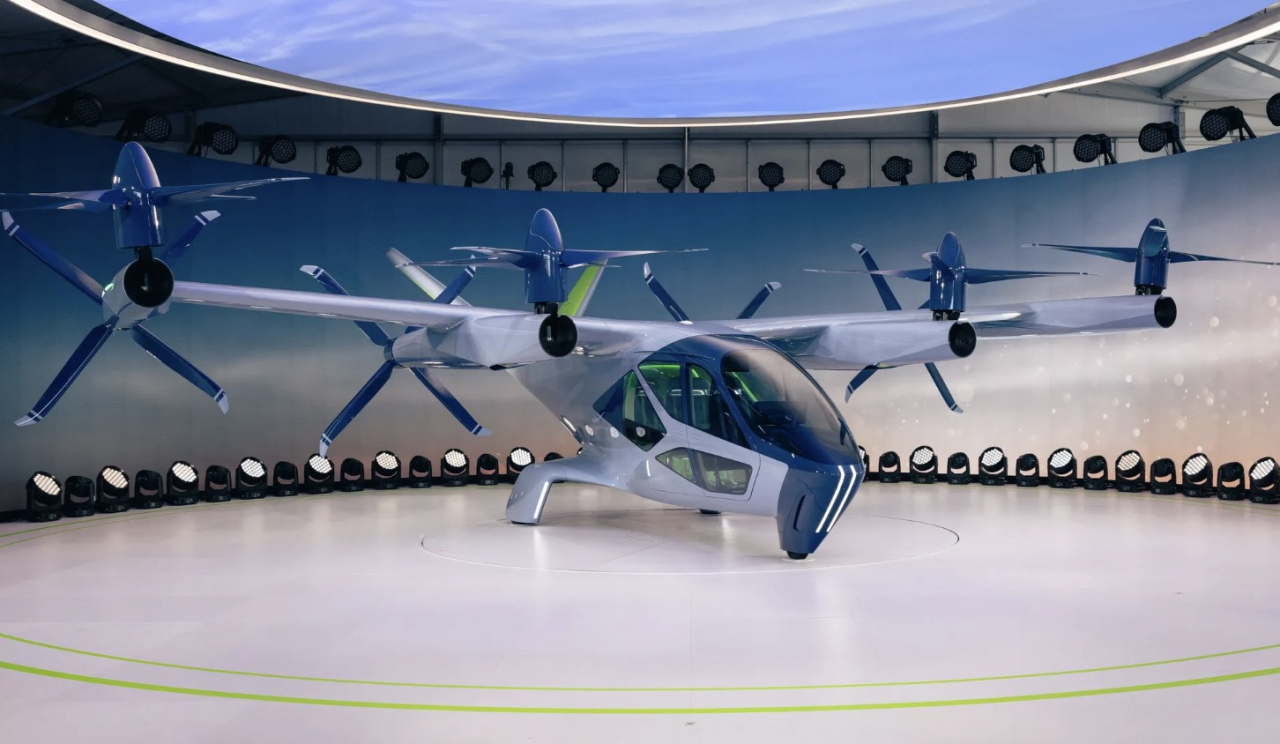Hyundai Motor, Supernal in search of best talents for advanced air mobility
With goal of debuting flying taxies in 2028, Hyundai-backed Supernal bulks up presence
By Kan Hyeong-wooPublished : Feb. 19, 2024 - 15:13

Hyundai Motor Group and its US-based advanced air mobility subsidiary Supernal are ramping up efforts to attract top urban air mobility talents as they aim to debut flying taxis in South Korea and the US in 2028.
According to Hyundai Motor Group’s online recruitment notice on Monday, the company has opened up ten positions related to specific areas within the AAM division, including strategic investment, AAM system engineering, flight control, aircraft body assembly, software design and development, autonomous flying system development and aeronautics software quality control.
Supernal’s recruitment webpage on the same day showed that the Hyundai-backed AAM company had 56 available positions. The openings included manufacturing equipment engineer, test data operations manager, head of sales, financial analyst, civil certification engineer, battery lab technician and structural analysis engineer.
“Through the multilateral development of technology and a push for business, Hyundai Motor Group’s AAM division has been preemptively preparing for future business in the AAM sector,” Shin Jai-won, CEO of Supernal and president of Hyundai Motor Group’s AAM division, told reporters at the CES 2024 in Las Vegas in January.
“Under the strategy of ‘Learning by Flying’ to develop an AAM aircraft, we have been quickly conducting design, development, test and advancement processes for our major systems.”
Supernal unveiled its latest electric vertical take-off and landing, or eVTOL, aircraft called the S-A2 at the CES 2024, about four years after Hyundai Motor debuted the S-A2, the previous concept model of the air taxi at the CES 2020. The S-A2 is envisioned to fly at a speed of 200 kilometers per hour at an altitude between 400 and 500 meters above the ground. Supernal said the air taxi will aim to have a flight distance of over 60 km with up to four passengers and one pilot on board.
According to Shin, the number of Supernal employees almost doubled to 600 over the two years since the company's founding. Supernal has drawn talents from major aeronautics and tech leaders such as Boeing, Lockheed Martin and Tesla.
Hyundai Motor Group did not release the exact number of employees working at its AAM division in Korea, citing confidentiality.
“(Hyundai Motor Group) is committed to the vision it laid out at the CES 2024 about the target of (debuting) eVTOL taxies in 2028,” said a Hyundai Motor Group official.
“We will continue to bulk up the number of our AAM personnel and carry out relevant investments.”
On top of seeking the best talents to advance AAM technologies, Supernal has also been actively seeking partnership expansions. The company has announced cooperation deals with over a dozen firms over the past two years, including Honeywell, Inmarsat, Korean Air and Microsoft.
With Hyundai’s support, Supernal aggressively expanded its presence last year by opening its engineering headquarters in Irvine, California, in July, a policy and commercialization hub in Washington in August, and a primary research and development facility in Fremont, California, in September.
Hyundai Motor Group has invested over $920 million in Supernal since the establishment of the overseas AAM unit in 2021, indicating the automaker’s focus on the flying mobility sector as one of its future growth engines.
According to a report released by Markets and Markets, the global eVTOL market could surpass $23 billion in 2035, with a projected compound annual growth rate of 52 percent. The first eVTOL flying air taxis are expected to be ready for commercial services in 2025.
-
Articles by Kan Hyeong-woo




![[Business Diplomacy] As Trump targets EVs, Hyundai-Kia shifts gears to hybrids](http://res.heraldm.com/phpwas/restmb_idxmake.php?idx=644&simg=/content/image/2024/07/30/20240730050592_0.jpg&u=20240730155845)





![[KH Explains] Hanwha scion steps into spotlight amid pending succession](http://res.heraldm.com/phpwas/restmb_idxmake.php?idx=644&simg=/content/image/2024/07/30/20240730050625_0.jpg&u=20240731124143)








